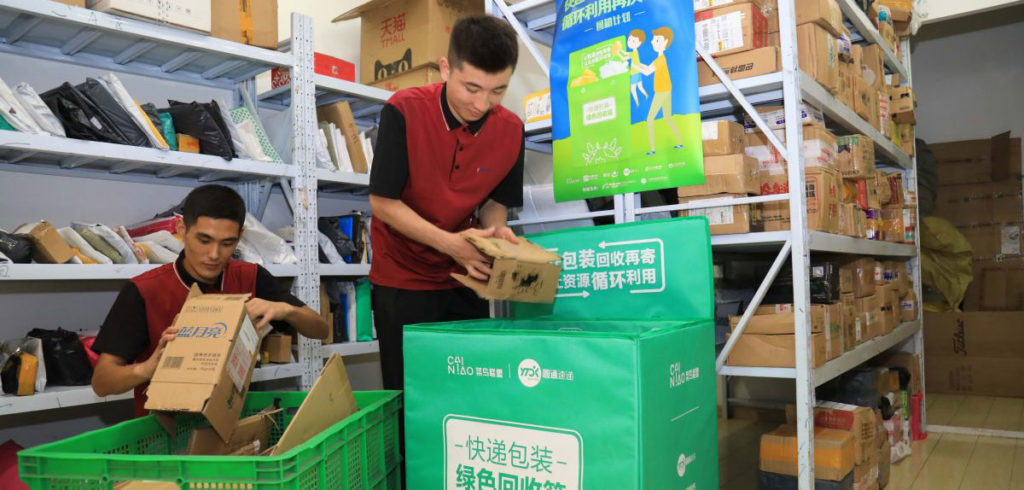Alibaba Group has revealed that it’s logistics arm, Cainiao Smart Logistics Network, processed 1.3 billion delivery orders in the 11.11 shopping festival earlier this week. Alibaba Group generated RMB 268.4bn (US$38.4bn) of GMV during the Singles Day event, up 26% on 2018.
With such a huge number of deliveries being made, Alibaba Group has committed to a number of sustainability measures to minimize its impact on the environment.
The group has, for example, set up recycling stations for unwanted shipping boxes and bags – 40,000 of them – across China through Cainiao, while its express-courier partners are hosting an additional 35,000. These 75,000 locations will continue to serve as permanent recycling stations after the sales event, helping to recycle over 100 million boxes annually. Alibaba will also establish November 20 as ‘National Cardboard Box Recycling Day’ in China, rolling out new recycling stations across 180 neighborhoods in Shanghai, Beijing, Guangzhou, Shenzhen and Hangzhou that day.
For every box recycled at Cainiao recycling stations, consumers can scan a QR code via their Taobao, Cainiao or Alipay apps to receive ‘green energy’ points on Alipay’s mini-program Ant Forest. Points can be redeemed to plant real trees in China’s most arid areas, such as desert regions in Inner Mongolia, Gansu, Qinghai and Shanxi.
These measures follow Cainiao’s most comprehensive green campaign to date: Alibaba Green Logistics 2020. The campaign represents joint efforts across the company to improve material recycling, packaging, route-planning and delivery methods to reduce waste and promote sustainability.
“Green logistics are an essential part of our business model,” said Niu Zhijing, who heads Cainiao’s Go Green Campaign. “We believe that sustainability can be only tackled through joint efforts across the value chain, from packaging suppliers, e-commerce platforms and brands to express-delivery companies, consumers and policymakers. All stakeholders need to act together.”


